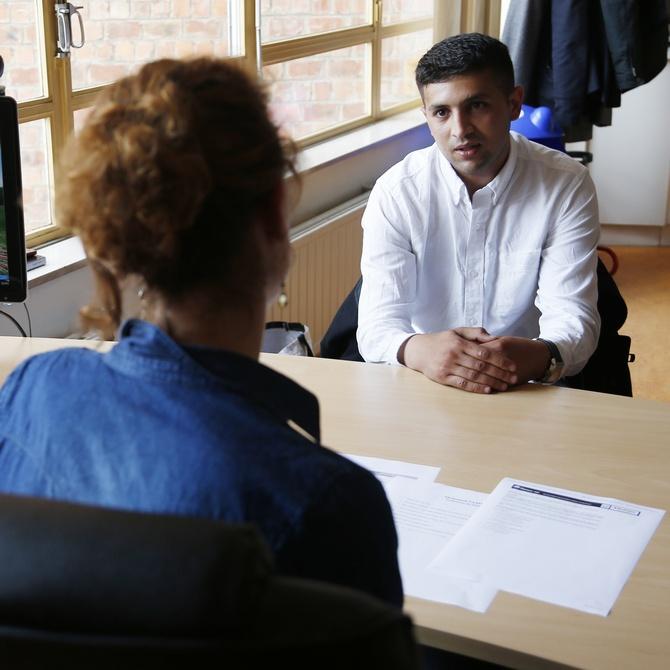Photographs: Francois Lenoir/Reuters Viraja Devi, College Affairs
It is seemingly the simplest question in an interview and you think you can nail it by being brutally honest.
Even so any question about your strengths and weaknesses must be answered with great care.
Master the art of being discreet and err on the side of caution says Viraja Devi, editor of College Affairs, a website that aims to help young students with their college lives.
One of the most commonly asked questions in any interview is: What are your strengths and weaknesses?
Simple question isn't it? But you would be mistaken if you think that answering the question would be easy as well.
I have seen many students, all thanks to this one simple question, losing out on a prospective job offer because they failed to answer it appropriately.
Read on to find out how you can use this question as your strength to excel in your interview.
When it comes to strengths, speak the facts
When asked to talk about their strengths, a lot of students respond with answers like, "Ma'am, I have great communication skills", "My strength is my hard work", "My never-give-up attitude is my strength" so on and so forth.
If my interviewers were to believe anything that I spoke, I would have said that I am the superwoman with magical powers that can change a rabbit into a pigeon.
I might sound exaggerating as I say this, but, trust me, words like hard work, attitude, perseverance would mean nothing to the interviewer unless they are backed by examples.
Pick instances from your life, where you have exhibited these traits and quote them to prove your strengths. Why would anyone be interested if you were to say that "your strength is your humility".
Unfortunately, if the interviewer saw you shouting at the watchman while entering the office building, you are already in the fray.
Besides being honest, you need to be consistent in what you say.
For instance, if you say that your strength is 'never give up' attitude then you must have a minimum three strong examples to support your point.
You cannot just say that in your fifth grade, you failed the maths test repeatedly but never gave up and finally one day, you cleared the exam. Now just because, I said something on consistency, do not say, "I failed my exams in pre-university, but I never gave up. I failed my exams in college, but I never gave up".
In fact that would give a different picture altogether to your interviewer.
By consistency, I mean, select appropriate strengths and appropriate examples to support your points.
Please click NEXT to continue reading...
This interview question can cost you your dream job
Image: The reason why an interviewer asks you your weakness is know how much you believe in self-improvement. So be smart about responding to that part of the question.Photographs: Regis Duvignau/Reuters
Now, this might sound like I am asking you to cheat your interviewer. Definitely not!
I am only suggesting you to be a bit smarter.
I have seen students who become overly truthful and blurt out all the weaknesses one possibly would have.
If you have constipation, that's none of your interviewer's business. The point is, choose to speak of your weaknesses wisely.
The reason why an interviewer asks you your weakness is know how much you believe in self-improvement.
Someone who evaluates his own weaknesses will possibly also try to work on overcoming them. Thus, mere knowing your weakness will not help.
You need to tell your interviewer the steps you have taken to overcome your weakness.
Also, understand that it is not really necessary to mention it if you succeeded in it because if you did overcome it, it is no more a weakness.
For instance, one of your weaknesses could be your short-temper. This is in fact, one of the most common answers given by the students.
Once you state something like this, the interviewer can actually start asking questions to check how short-tempered you are.
If you lose your temper, no one will clap for you for proving it.
The interviewer would rather love to see how you try to overcome that weakness of yours.
Self-evaluation and self-improvement is the mantra here.
Knowing your weakness is great, but having a plan to overcome that is the best.




Comment
article